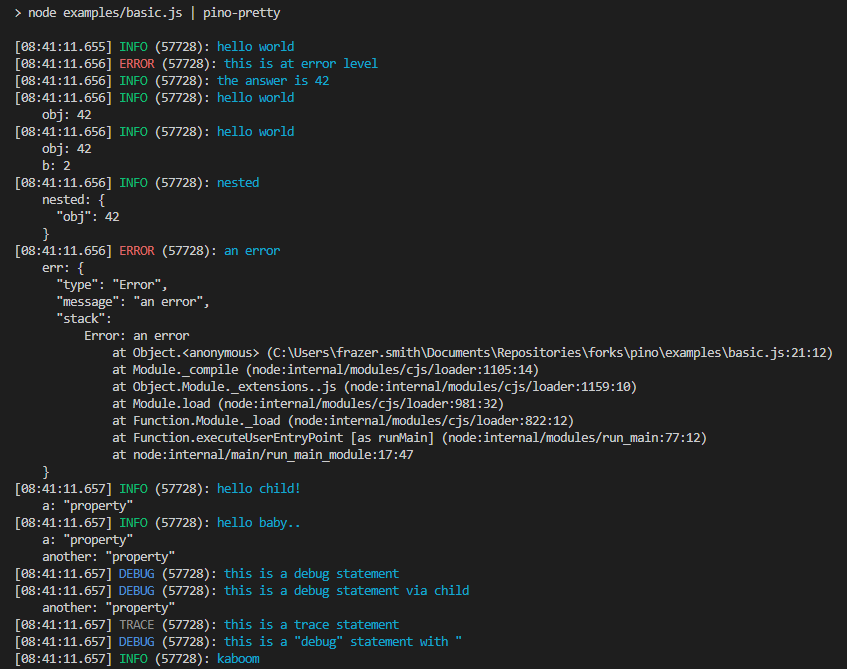pinomin
v1.0.4
Published
Minimalistic logger compatible with pino
Downloads
1,331
Readme
pinomin
Minimalistic JSON logger compatible with pino logger. Pino uses lot of optimalizations to be super fast. Sometimes, these optimalizations could cause problems and you need only to create few simple logs. pinomin is naive logger implemented in one file, thanks to compatibility, you could upgrade to pino, if you need better performance.
Install
Using NPM:
$ npm install pinominUsing YARN:
$ yarn add pinominUsage
const { createLogger } = require('pinomin');
const logger = createLogger();
logger.info('hello world');
const child = logger.child({ a: 'property' });
child.info('hello child!');This produces:
{"level":30,"time":1531171074631,"msg":"hello world"}
{"level":30,"time":1531171082399,"msg":"hello child!","a":"property"}Configure logger
Configuration is different from pino, you could define multiple targets by default.
const logger = createLogger({
base: { pid: process.pid },
targets: [
{
type: 'console',
level: process.env.CONSOLE_LOG_LEVEL || process.env.LOG_LEVEL || 'info',
},
{
type: 'stream',
level: process.env.FILE_LOG_LEVEL || process.env.LOG_LEVEL || 'info',
stream: fs.createWriteStream('/etc/logs/mylogs.txt', { flags: 'a' }),
},
],
});- There are two types of target available
consoleoutputs JSON log messages to console with console.logstreamwrites JSON log messages tostreamproperty
baseproperty defines base object to be merged into produced JSON log messages
Development Formatting
pinomin uses the same format as pino logger, so pino-pretty module could be used for producing nice log outpus during development.

